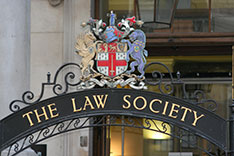
As well as urging government and the Legal Services Board to undertake proper research on the effect of referral fees, Council has decided that the society should argue that referral fees do not have a place in markets for legal services and that payment of referral fees by all providers of legal services should be banned.
The Law Society’s Council voted earlier this month to amend its policy with respect to referral fees.
As well as urging government and the Legal Services Board to undertake proper research on the effect of referral fees, Council has decided that the society should argue that referral fees do not have a place in markets for legal services and that payment of referral fees by all providers of legal services should be banned.
The debate has a long history. Since the controversial decision to permit solicitors to pay referral fees, the Solicitors Regulation Authority (SRA) has looked at the matter, particularly in the light of findings which suggest that there is a significant lack









